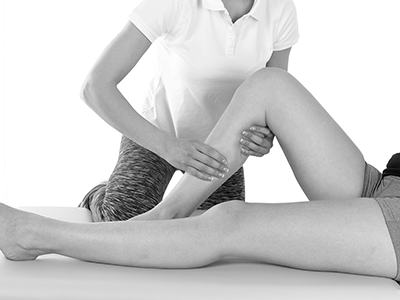Exercise Physiology For Sports Injuries

Injuries in sport are very common, and something we see frequently at Central Performance. Treatment for a sports injury usually begins with physiotherapy where you will receive a diagnosis of your injury, have hands-on therapy to settle your pain and restore your range of motion, and initial exercises to regain strength and movement. Often that is where a patient’s treatment finishes, leaving a gap between the amount of effort, speed and force required for their rehab exercises and what they will be required to do on the sports field. At Central Performance we pride ourselves on offering a much more comprehensive rehab process, and our accredited exercise physiologists play a key role in the later stages. They are experts at developing functional and sport-specific strength and conditioning programs to not just return you to sport, but to make you stronger, faster and more injury-resistant than ever before.
The goal of exercise physiology as
you return to sport in the final stages of your rehab is to expose you to
higher level gym exercises, agility and plyometric exercises that fully prepare
you for the demands of your sport. Our fully equipped on-site gym contains a
15m sled track, squat racks, Olympic barbells and bumper plates, plyometric
boxes, medicine balls and kettlebells, providing a first-class sports rehab
facility. Our accredited exercise physiologists combine their clinical
knowledge of injuries with extensive experience in exercise prescription plus
their passion for a wide variety of sports to provide outstanding return to
sport programs.
Steps In Exercise Physiology Treatment For Return to Sport
Initial Assessment
Your exercise physiology return to
sport program starts with taking a comprehensive injury history, of both your
current injury and any previous injuries. We will also review your current rehab
exercises as well as your usual training load and work with you to set goals
for both your return to sport and long-term performance goals.
You will also undergo a thorough
physical assessment of both your injured part as well as a full body movement
assessment. This will allow your exercise physiologist to work with you to
devise a program that rehabs your injury, addresses possible contributing
biomechanical factors at other body parts (e.g. reduced hip range of motion in
a knee injury) as well as other performance-reducing bottlenecks that are
unrelated to your injury.
Your Exercise Physiology Treatment Program
Your return to sport program is developed
based on the results of your injury and movement assessment, your experience
with gym-based exercises and your goals for your rehab and long-term
performance. Your program will progress along the following steps:
- Specific local strengthening and range of motion exercises for the injured body part.
- Progression to full-body strength exercises that integrate the injured body part into foundational movement patterns such as squat, lunge, hip hinge, push and pull. We will also address other performance bottlenecks to allow you to return to a higher level of performance when you return to sport.
- Progress further to sport-specific exercises including plyometric and agility drills that require forces and speeds that replicate what you will experience in your sport. This is very important to allow you to return to sport with full confidence and optimal conditioning, providing maximum performance with minimal possible risk of injury.
Our goal at Central Performance is to
provide you with a comprehensive return to sport program that will see you
return to sport confidently and completely physically prepared. This allows you
to perform at your best with the least possible chance of
re-injury.


